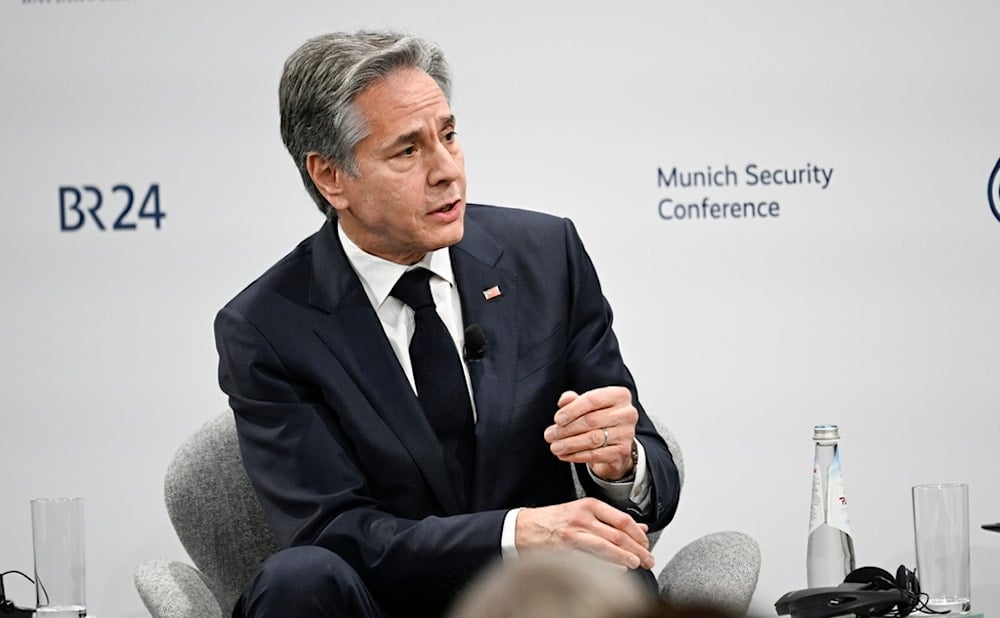Blinken says the US should eat, not get eaten, on Sino-US rivalry
Blinken has affirmed the US' strident sustenance of the rivalry against China, noting that the country keeps trying to recruit countries to voluntarily join the axis against China.
-

U.S. Secretary of State Antony Blinken takes part in a panel discussion at the Munich Security Conference (MSC) in Munich, Germany, Saturday, Feb. 17, 2024 (AP)
The United States Secretary of State Antony Blinken remarked on Saturday that the international system is built on the idea of countries that eat or get eaten, in a discussion on the competition between the US and China.
Talking about the global effect of the rivalry between the two polarities at the annual Munich Security Conference, Blinken said "If you are not at the table in the international system, you're gonna be on the menu."
Blinken also affirmed the US' strident sustenance of the rivalry against China, noting that the country keeps trying to recruit countries to voluntarily join the axis against China.
"What we don't need to do and what we're not doing is trying to somehow divide a world into rigid blocs," he said.
In attempts to continuously expand the US' global impact, Blinken affirmed that his country continues pursuing collaboration with other countries on various projects and structures depending on their objective.
Read more: Blinken, Wang held 'candid, constructive' talks: Beijing
What are American objectives?
The objectives themselves, in this context, could very possibly be related to provoking China through influencing countries in its vicinity.
For example, last week, the Philippines and the United States conducted a joint military drill in the South China Sea in a series of military exercises to expand the Philippines' military presence in the region.
This marks the third military exercise conducted by both countries in collaborative efforts, increasing provocations against China, which regards the US presence in the region as an interference in Chinese and regional affairs.
Ever since the US and the Philippines launched joint military naval exercises, bilateral relations between China and The Philippines saw sharp declines, adding to the existing tensions and territorial conflicts.
A few days later, the Chief of the US Space Forces in the Indo-Pacific region stated that the United States does not want a conflict with China, but expressed concerns that incidents in the South China Sea could lead to the two countries going to war due to a lack of communication.
Speaking at the Air and Space Forces Association's air warfare symposium in Colorado's Aurora, Anthony Mastalir said that his "biggest concern is that some miscalculation in the South China Sea" coupled with "lack of communication between Beijing and Washington [with] unintended consequences could get us into a conflict that the United States does not seek."

 3 Min Read
3 Min Read








